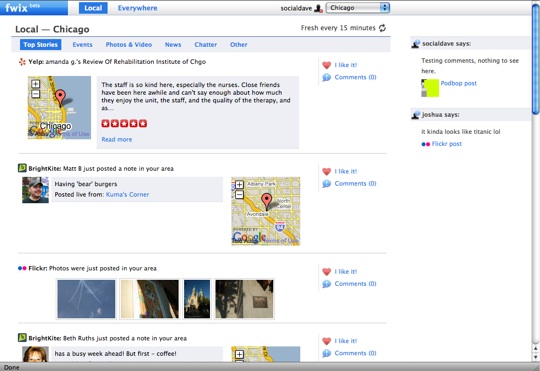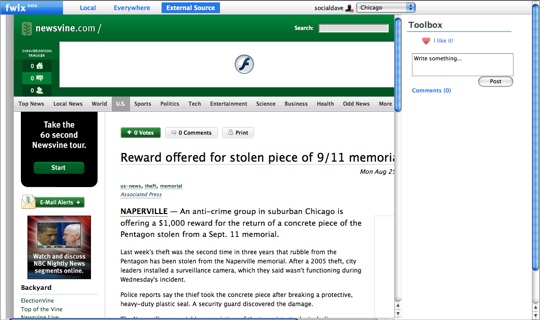Location-aware services are exploding on both the desktop and in our pockets (no, we aren't just happy to see you). While being able to view Flickr photos shot in your city or to see local microblogging posts on Twitter is fun and all, we haven't seen anyone really aggregate location-based media into one lifestream to provide a birds-eye view of what's going on across news outlets, social networks, and other UGC communities.
A new company called Fwix is trying its hand at solving this problem with a location-based media aggregation service, and we had a chance to speak with Darian Shirazi, the company's CEO.
You are here—and so are all these other people
The simple idea behind Fwix (short for "Feed with a mix") is to pipe in updates from a wide variety of news sources and social networks, then sift through it all to provide a custom "lifestream" relevant to a major US city. Things like local New York Times articles, Yahoo Upcoming events, Orbitz deals, Craigslist posts, Indeed job listings, Brightkite social network updates, geotagged Flickr photos, and even videos from YouTube and Vimeo can all be listed in a city's lifestream. It's a great way to keep tabs on what's going on across all these outlets without having to visit them all separately, let alone sign up for each one.

Fwix's main page while logged into its Chicago section
During Fwix's development process over the last two months, the site was aggregating nearly 500,000 stories per day and filtering them down to about 2,000 stories for each of the five major cities it was serving. For a new release today, Shirazi told Ars Technica that Fwix now collects over 2 million stories for a total of 26 cities. Fwix's range of sources has expanded quite a bit as well, as it now watches 35 online communities including Yelp for retail and restaurant reviews, Yahoo Answers, Hulu, Delicious bookmarks, and more.

